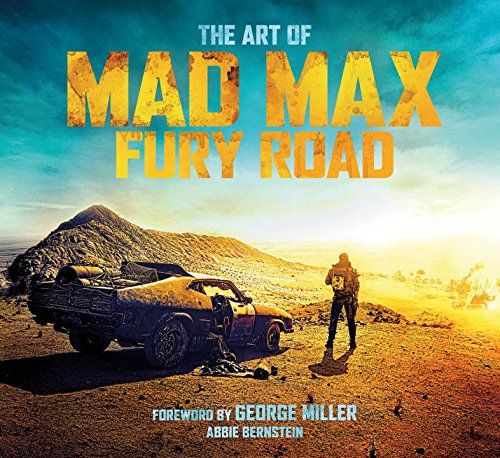Some movie companion books are little more than cash grabs,
collections of official stills loosely connected with bland copy that sounds
pulled from the production notes. It’s rare to find a tie-in coffee table tome
that really does its film justice. One such book for one such movie is “The Art of Max
Max: Fury Road” by Abbie Bernstein, now available online and a must-own for
fans of arguably the best film of 2015 so far, George Miller’s “Mad Max: Fury
Road.” With a foreword by Miller himself and dozens of pages of storyboards,
concept art and behind-the-scenes details, this volume is not mere fan service.
It is a window into just how complex the process was behind this film. Surely
you’ve heard about the real stunt work (over CGI), difficult shoot that caused
tension on the set and remarkable attention to detail, but “The Art of Mad Max:
Fury Road” will still blow your mind.
As Miller notes in his foreword, “Every vehicle, motorbike, weapon, costume, prop, every character and
indeed their manner of speaking, came by way of this unifying backstory. In
this elemental, neo-medieval world, there is no mass production—just found
objects, repurposed.” Miller and his team used this concept in every aspect
of their design, particularly in how their vehicles were crafted, both in how
they would look and how they would work. And so each vehicle has a back story.
Why does it look like that? What does it say about its owner? Why would it
function like that? Just this section alone of the book is fascinating but it’s
merely the tip of the iceberg.
What one quickly learns even just casually perusing this
volume is that there was no such thing as a small decision in the “Fury Road”
process. What would the skull logo of Immortan Joe’s bad guys look like? There
are a dozen sketches of attempts before they got the one they wanted. There are
handprints and a signature on some of the cars, like WWII pilots branding their
own vehicles. And, of course, the character design—costume, makeup, back story—for
people like Nux and Immortan Joe is a finely detailed process.
There’s also just tons of cool trivia in “The Art of Mad
Max: Fury Road.” Plenty of people have wondered about Doof, the guitar-playing
maniac who spits fire from his axe. Not only does he have a back story, he has
a purpose—the idea is that the noise of the vehicular carnage is so loud that
barking instructions is not possible and so Joe channels his battle orders
through Doof’s music. That’s awesome. Another thing I loved was the inclusion
of storyboards and concept art that Miller created years ago, often mirror
images of the final film. He really did deliver what he wanted, and it took
years to perfect and deliver. This great book gives you a glimpse as to how
much work goes into creating that kind of movie magic and maintaining that
level of commitment all the way to the Summer movie of 2015.












